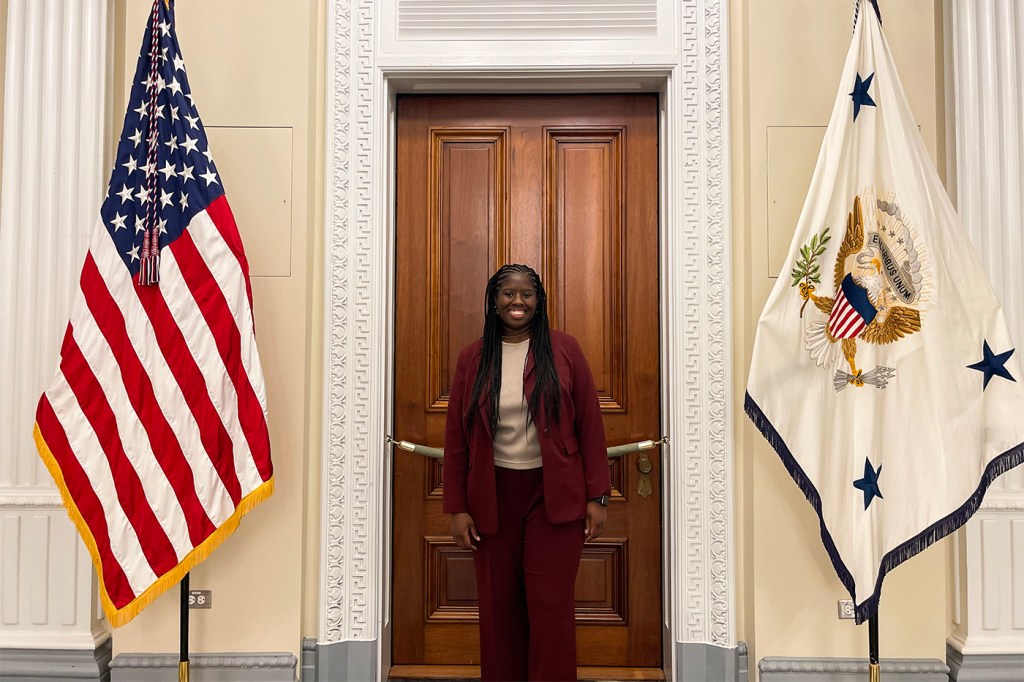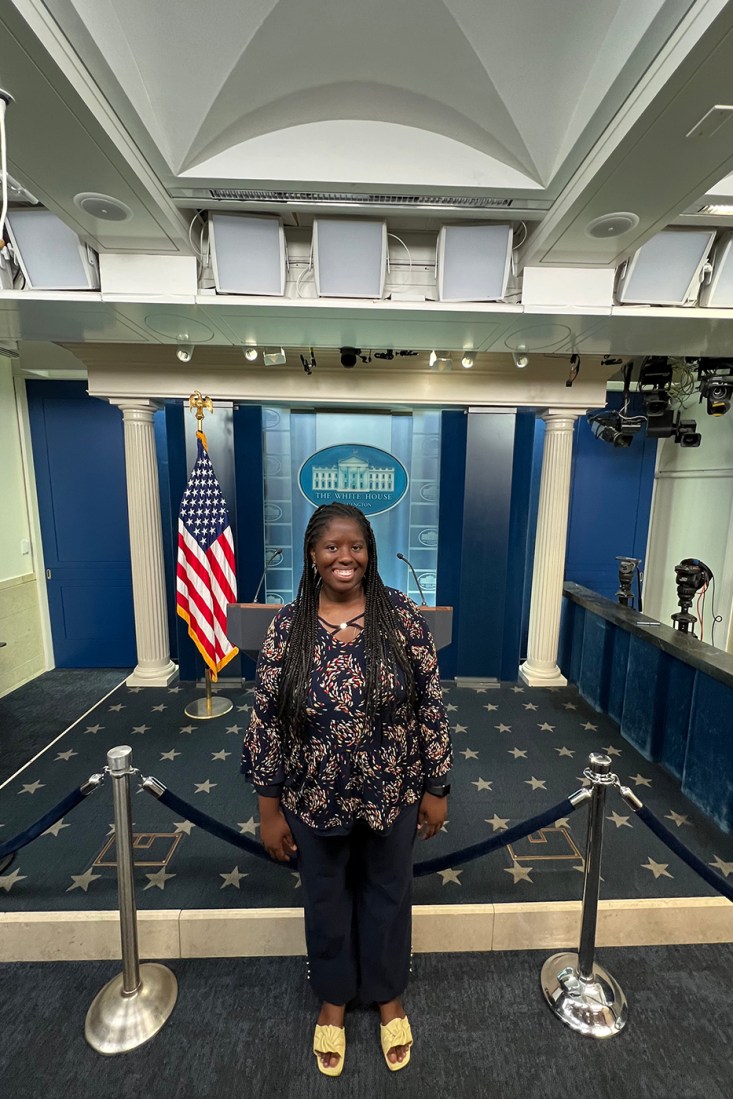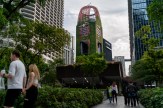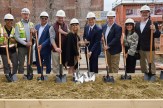Northeastern student helps shape US science policy during White House internship

Northeastern University student Siima Machayo is interested in science policy.
So, this past summer she went to its source, working as an intern in the White House Office of Science and Technology.
“The opportunity to be in the White House and to have a seat at shaping policy solutions that will propel American technology and science leadership for the advancement of all people was really exciting,” says Machayo, a junior studying behavioral neuroscience and social innovation and entrepreneurship. “This summer, I was encouraged to see the power of people mobilizing and organizing for equitable and lasting change across the nation. Being a part of this work gave me a greater insight into the country. It inspired me to continue the important work of science policy.”
Machayo was an intern with the White House Office of Science and Technology, where she worked on the President’s Council of Advisors on Science and Technology (PCAST), a group of CEOs, presidents of top universities and nonprofit leaders in science and technology.
The group is charged with making science, technology and innovation policy recommendations to the president and the White House.
“It was really interesting to hear about the intersection between policy and subject matter expertise in a real-world application,” Machayo says.
Her efforts led to the publication of a report on advancing nutrition science in the United States by highlighting “the critical intersection of nutrition, public health and economic well-being.”

For a pre-medical student like Machayo, it was a motivational experience.
“It helped me deepen my understanding of how nutrition impacts both mental and physical health and how socioeconomic factors and location and demographics truly influence how people have access to nutrition and how that links to other chronic conditions,” Machayo says. “Looking down the road, I hope to implement this into my future medical career and advocate for holistic approaches that consider both nutrition and mental health in patient care.”
Machayo says she was drawn to the White House and policy work as a member of a “very civically-engaged household” in Northern Virginia. In fact, her brother was a member of the White House staff during the Obama administration.
When she saw that the White House Office of Science and Technology was offering an internship, she thought it was “the opportunity of a lifetime.”
This summer was also a pretty interesting time to be in Washington, Machayo says, with the presidential campaign and President Joe Biden’s decision to drop out of the race.
Featured Posts
Machayo says that a big part of her experience was taking the opportunity to volunteer — doing everything from handing out ice cream at a White House event on the Fourth of July to helping with AI Aspirations, an event that invited leaders to project a vision for using artificial intelligence to achieve the country’s ambitions.
“It was really cool to learn about people who have committed their life to making sure AI is used in a sensible and great way that benefits all Americans,” Machayo says. “Often it seems you hear of it in more of a negative connotation, but it was inspiring to see the leaders that make some of the most crucial decisions are thinking about it in a positive light.”
Then there were also the connections to be made — with staffers, medical professionals and other interns.
“I’ve never had so many coffee chats,” Machayo says. “I was just so inspired by their work and how they got to where they are today and the decisions that they had to make.”
She particularly mentioned the support of her supervisors at PCAST, Lara Campbell and Melissa Edwards.
Machayo says it was particularly inspiring to see such diverse representation.
“My mom always said, ‘You cannot be what you can’t see,’” Machayo says. “So it was really profound to be in spaces where I can see people who look like me, who are doctors, people who are minorities, who taught me the importance of resilience but also what helped them along the way to get there.”
As for other students who are looking to get themselves to a White House team, Machayo has several bits of advice she has garnered from the experience.
“Embrace your curiosity and be inquisitive,” Machayo says. “Don’t hesitate to ask questions, explore new ideas and seek out learning opportunities. Most importantly, stay present.”
You might even hear from the president of the United States.
“Both President Biden and Vice President Harris individually took 10 minutes and talked to the whole intern class and told us to keep doing the work we’re doing and that we inspire them,” Machayo recalls. “It’s crazy, because they both inspire me tremendously.”











